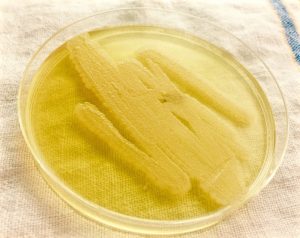The 100K Pathogen Genome Project at the University of California-Davis has sequenced the first 10 infectious microorganisms. Scientists are creating a free online reference database of bacterial genomes. During a foodborne illness outbreak, public health officials will be able to “quickly identify the responsible microorganism and track its source in the food supply using automated information-handling methods,” Bart Weimer, director of the project said.
 Researchers think this database will cut the time necessary to diagnose and treat foodborne diseases in half. In addition, scientists may be able to develop new methods for controlling pathogenic bacteria in the food chain. They are also creating a culture bank that will be maintained at UC Davis in the School of Veterinary Medicine. Researchers think that these genomes will provide insights into the methods of infection and bacterial drug resistance.
Researchers think this database will cut the time necessary to diagnose and treat foodborne diseases in half. In addition, scientists may be able to develop new methods for controlling pathogenic bacteria in the food chain. They are also creating a culture bank that will be maintained at UC Davis in the School of Veterinary Medicine. Researchers think that these genomes will provide insights into the methods of infection and bacterial drug resistance.
The first bacteria to be sequenced included some strains of Salmonella and Listeria, which cause millions of foodborne illnesses in this country every year. Last month the Project discovered “hypervirulent” Salmonella bacteria, giving researchers a way to prevent food poisoning outbreaks from these powerful strains.




